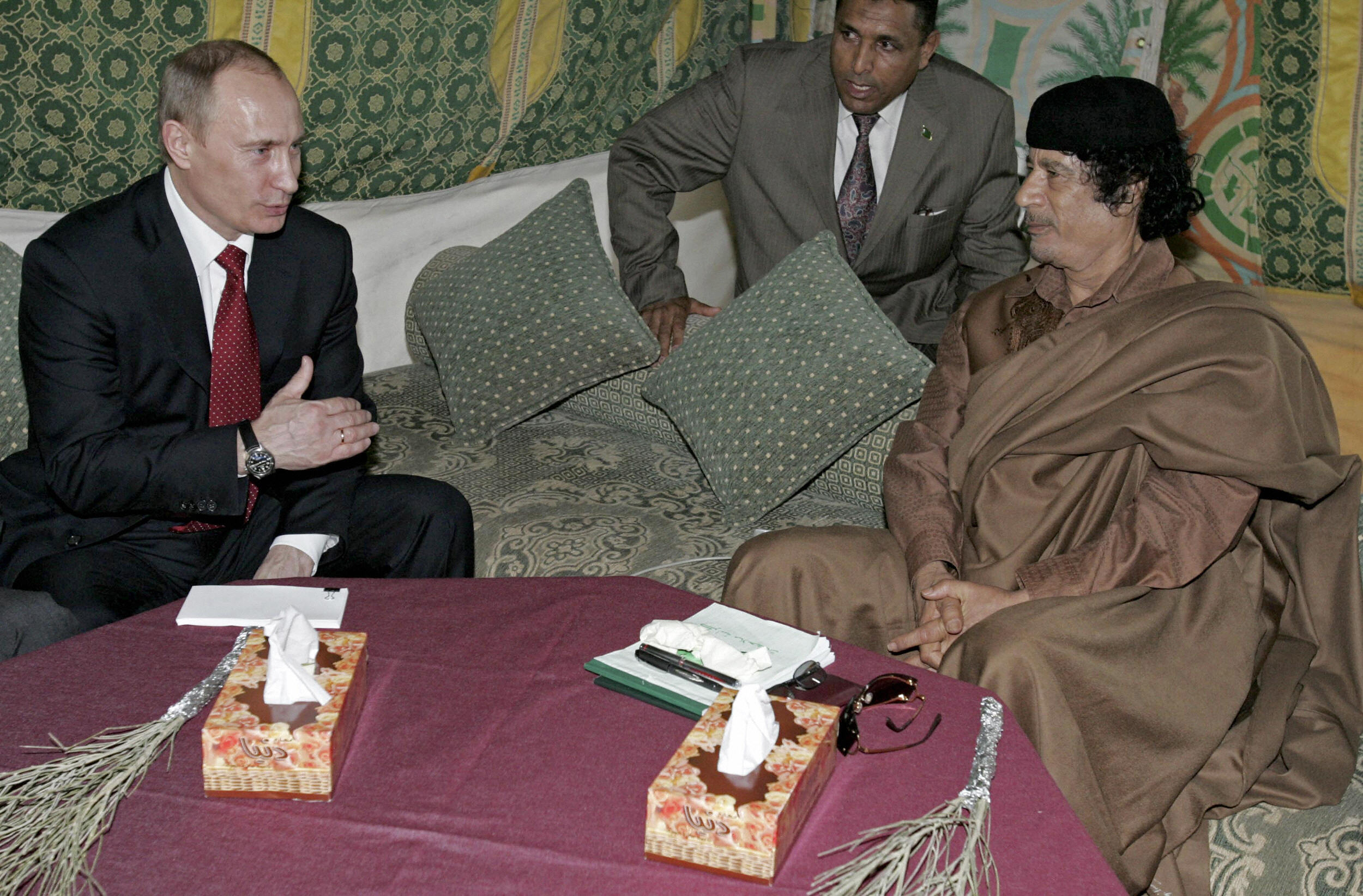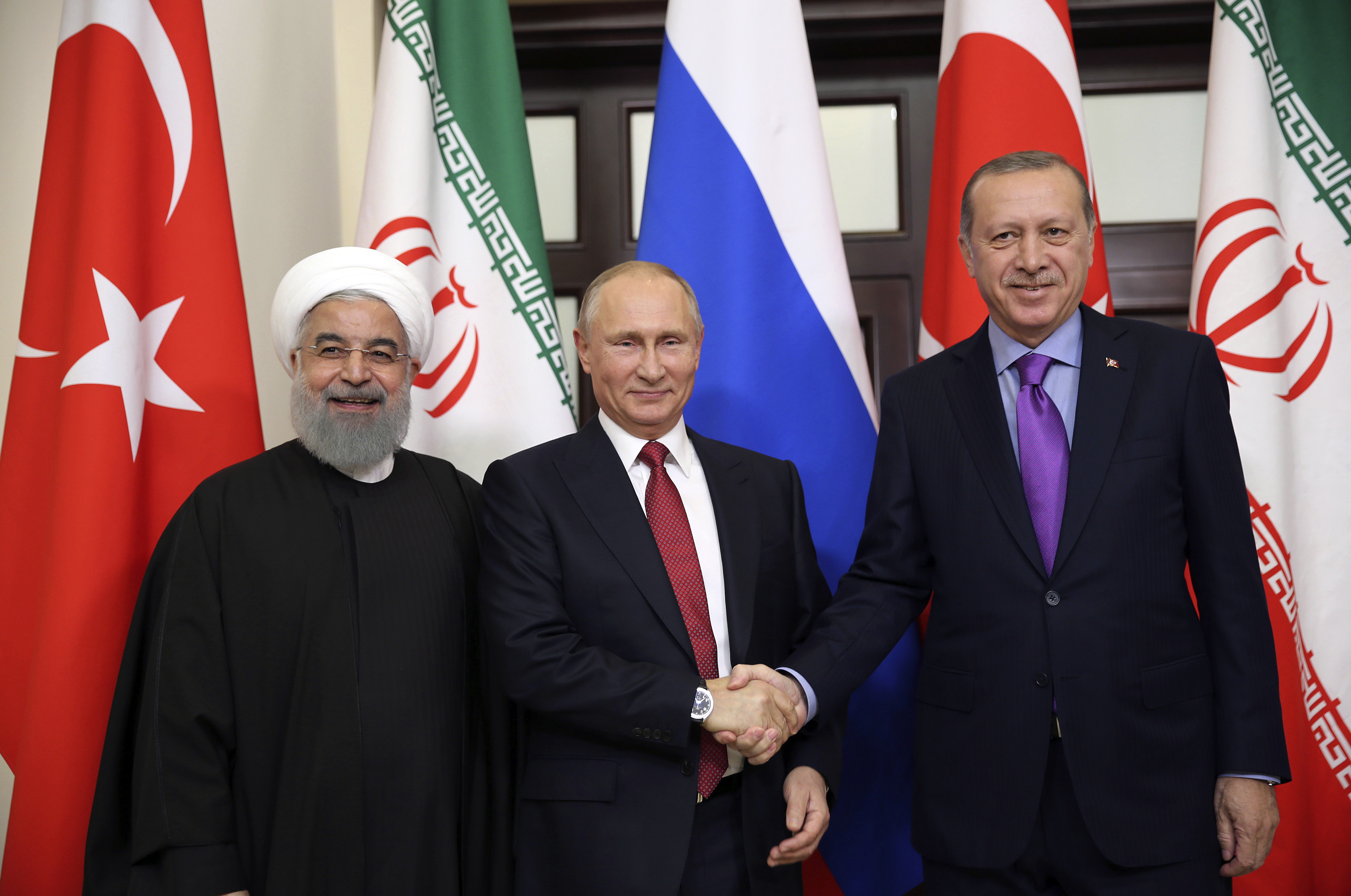As the FBI drills down in its investigation into Russian interference in the 2016 election and the Pentagon vows to build new capabilities to take on Russian weapons, Russia is, in plain sight, also working on a global power grab with its energy gambit.
Nord Stream 2, the deal that prompted President Donald Trump to blow a gasket at the NATO summit earlier this month, has Germany doubling the amount of natural gas it is buying from Russia. Russia is also building a pipeline through Turkey, reaching Eastern Europe, hoping to close the European loop.
But Russia’s expansion in the energy market goes beyond Europe, spanning continents, conflicts, and economies.
“What we have now is a situation where Russia is a power that the United States needs to consider in policies in Latin America and Middle East in ways it did not need to five years ago.”
It can take the form of selling energy (natural gas), building and protecting infrastructure (Syrian oil fields), or investment (Iran’s oil fields). It can take the form of debt relief that then yields preferential rights or contracts for Russian businesses, including energy companies.
The Trump administration is aware of all this — but so far, its best attempt in countering Russia has been to demand that Europe purchase the more expensive U.S. liquefied natural gas in exchange for lifting the tariff on European cars.
“Russia’s energy tactics are a global strategy that seeks to influence current and future energy markets,” said Theodore Karasik, project investigator for the Russia in the Middle East Project at the Jamestown Foundation.
“Influencing energy markets is part of the equation in order to garner political advantage, and specifically, geopolitical advantage,” he told ThinkProgress.
The energy tactic is more potent than Russian arms sales because it has “a sharper effect on the ground and on economies,” said Karasik. “The energy gambit is the long game.”
An energy market can destabilize an economy, and it can destabilize a government — not that Russia necessarily intends to upend the countries with which it’s dealing. But in some countries, it does give the federation leverage that the United States lacks.

Russia is striking energy deals in Latin American countries (taking over Venezuela’s gas field, selling oil to Cuba, and assisting with a nuclear plant in Bolivia) to exert influence where that of the United States has waned.
In wielding its number-one export as a geopolitical tool, Russia’s energy interests are partnering with other companies and countries around the globe to capture and influence energy markets.
“You can see this activity with China and the Gulf states, and you can see it with agreements with OPEC [consortium of oil producing countries] — with some even using the acronym ROPEC to describe this new reality,” said Karasik.
Striking deals with countries such as Saudi Arabia allows Russia to influence supply and demand, keeping prices within a certain range, much to the dismay of President Trump, who recently demanded via Twitter that OPEC countries increase their oil production in order to lower prices at the pumps in the United States.
Oil prices are too high, OPEC is at it again. Not good!
— Donald J. Trump (@realDonaldTrump) June 13, 2018
So far, no dice.
“Well, first of all, tweeting oil policy is a mistake because it does not recognize market fundamentals,” said Karasik. “In fact, it upsets them tremendously and that’s not the point here. What Trump is trying to do is typical Trump, which is to try to force the market into a capitulation on terms that are favorable to the U.S.”
What is Trump’s energy policy?
While Russia is not known for its diplomatic charm, Paul Stronski, a senior fellow in Carnegie’s Russia and Eurasia Program, said that it is known for its “diplomatic shrewdness in that it has a strategy for engaging with countries that often includes a business or trade component.”
And the Trump administration is clearly not well-positioned to deal with this. He has yet to even push for using sanctions that could target the Nord Stream 2 pipeline.
A good starting point, said Stronski, would be to have a good energy policy — one that hinges on having a good grasp of the market and on the understanding that, in order for a political deal to be viable, it has to also be commercially and economically viable.
There are people in the administration that are paying attention to the issue, but their view might be a bit narrow.
“I don’t really see a lot of energy policy except ‘Drill more. Pump,'” he said.
(Well, that, and “beautiful clean coal,” as the president likes to call it.)
“I don’t think we have clear energy policies in this administration — just a lot of rhetoric,” he added.
Russia finds a sweet spot
It is important to note that not all of the countries that have energy deals with Russia are necessarily beholden to it. For instance, contrary to what President Trump said, the natural gas deal with Germany does not mean Russia owns the country.
“Russia also needs Europe just as Europe needs Russia,” said Stronski.
While Russia’s massive energy companies, such as Rosatom and Rosneft (which are government controlled) and Lukoil (which is not), are certainly not just Kremlin agents — they are businesses that need to generate income — their contracts nonetheless play a key role in advancing Russia’s geopolitical aspirations.
Those aspirations have put Russia in a prime spot in countries such as Syria, where Russia inserted itself after the start of the civil war in 2011, and in Venezuela where massive political and economic unrest have served to isolate the country, and where Russia stepped in a “the lender of last resort,” said Stonski.
“When the president suggested that there might be a need for regime change, suddenly, you saw Russia swooping in and keeping the economy afloat and in response, getting a nice chunk of the state oil,” said Stronski, who prior to his current position was a senior analyst for Russian domestic politics in the U.S. State Department’s Bureau of Intelligence and Research.
What we have now is a situation where Russia is a power that the United States needs to consider in policies in Latin America and Middle East in ways it did not need to five years ago.
Stronksi also points out that Russia and Russian companies are prone to announcing big deals that may or may not bear fruit, little more than PR for domestic consumption.
For instance, its annual big deals with China didn’t really mean much but only started to pay off after sanctions started to bite following Russia’s illegal annexation of Crimea from Ukraine in 2014, which drew widespread international criticism.
Russia’s delicate dance in the Middle East
Russia is threading a needle in the Middle East, playing multiple sides in a tense region.
Aside from strengthening energy ties with Saudi, Russia has also positioned itself in Iran, Turkey, and Syria — and the war-torn country is proving to be an interesting investment for the federation.
“What [the oil deal] allows is for Russia to be interwoven into Syria’s deep state, the socio-economics of the regime in the post-conflict situation.”
The terms of Russia’s deal with Syria “remain murky,” said Nicholas Heras, fellow at the Center for a New American Security working in the Middle East Security Program. What’s clear though, he told ThinkProgress, is that it is “a mercenary agreement.”
Based on the activities of the Russian private military companies (such as the Wagner Group) that are active in central and eastern Syria, what’s clear is that Russia is somehow involved in oil extraction there, possibly taking as much as 25 percent of the cut.
But Russian involvement, said Heras, has implications far beyond the scope of the agreement — for Iran, Israel, and the United States.
Russia and Iran are “shadowboxing” over Syria’s not-so-vast resources, said Heras, with Iranians largely focusing on rebuilding infrastructure (i.e., telecommunication) and Russia focusing on energy in the Syrian port city of Latakia and near Palmyra.
“The Russians are playing the smarter, long game,” said Heras, in building a stable foundation for a long-term presence in Syria on two pillars. Its military assets (the Khmeimim air base near Latakia and its naval base off the coast of Tartus) allow Russia to carry out expeditionary warfare throughout the eastern Mediterranean and the broader Middle East, and it also has a presence in energy extraction in Syria.
“What this allows is for Russia to be interwoven into Syria’s deep state, the socio-economics of the regime in the post-conflict situation. It gives Russia another way to be embedded in the regime, and to build its influence to counter Iran,” said Heras.
Russia needs the ability to keep Iran in check, especially when it comes to Israel — because it needs a stable Israel as much as it needs a stable Iran.
Being a part of Syria’s deep state will also give Russia more leverage to control Iran not only in Syria but also maybe in Lebanon, which has close ties with the Assad regime.
Given Russia’s advantages, Heras said the only thing the United States can do is to “look at Russia, as we do at China – as another actor…and in some senses, having Russia more involved in the Middle East is better for the U.S. than having Iran heavily involved in the Middle East.”
In other words: the Trump administration needs to figure out if giving the federation some leeway in Syria is worth it in return for what Putin can do to curtail Iran’s ambitions and prevent any chance of a catastrophic war with Israel.
“Those are the stakes here,” said Heras.
But how can Russia keep Iran happy? Karasik figures this will be a quid pro quo between the two on Tehran’s presence in the Levant. Russia is allowing Israel to strike at Iranian military positions in Syria. In exchange, Russia has offered Iran energy deals.
It’s unclear if this will work in the long run, but then, Russia has its eyes on more than one deal in the region. In addition to the pipeline it is building through Turkey, Moscow is once again dipping its toes back into Libya, where it has loved and lost in the past.
Russia took a big hit with the 2011 ouster of Libyan leader Muammar Gaddafi. Russia had given Libya some debt relief and had billions of dollars in arms deals that died with the dictator. Its energy companies had also invested in oil and gas exploration, contracts that burned in the fires of the revolution.
As it stands, Karasik said that Russia’s involvement hinges on the Site basin, which holds 80 percent of the country’s oil reserves. General Khalifa Haftar — who has increasingly stronger ties with Russia — has been fighting the Tripoli-based government for control of the fields.

But there are complications, the least of which is the presence of other foreign companies, notably, France’s Total, Italy’s ENI, and Norway’s Equinor — in the country.
“Plus, the oil still belongs to Tripoli. So the Russians are smart and they play all sides of the Libyan war. … More importantly, though, is what lies in Libya’s south, which is untapped gas deposits … they want to be able to get into those,” said Karasik.
What’s crucial to remember, said Stronski, is that focusing on Putin’s motivations isn’t really the answer.
“Putin is looking out for his own,” he said. “And our president is making a slew of mistakes and does not really have clear policies toward anything except imploding whatever existed beforehand and he’s not really replacing it with anything else.”




